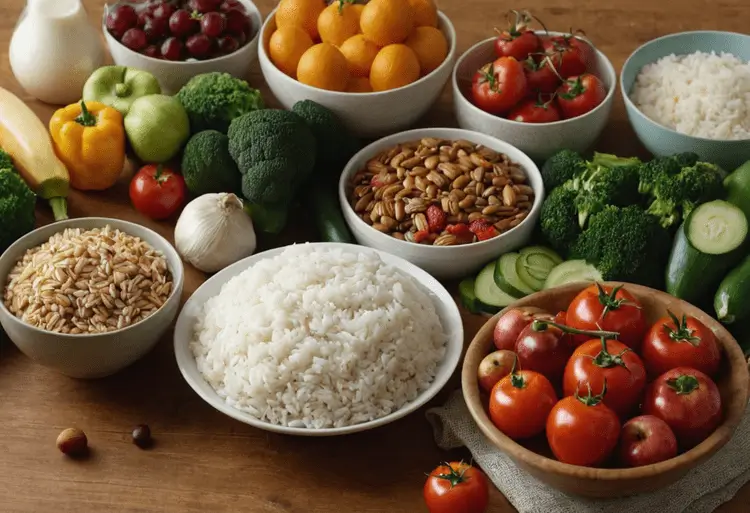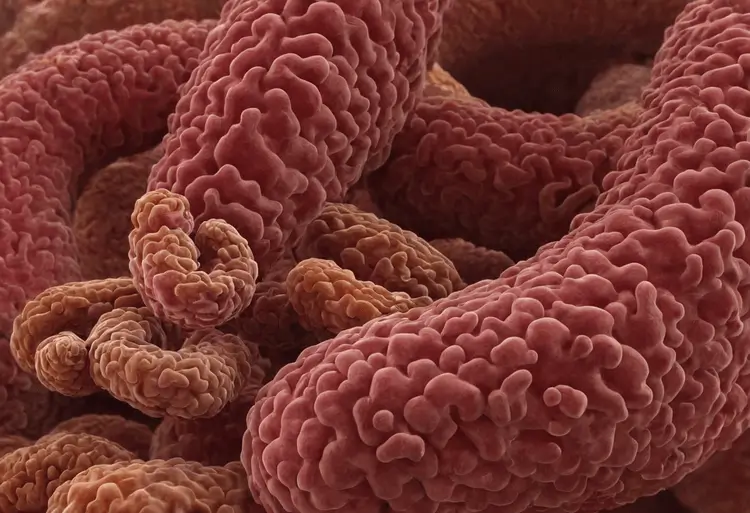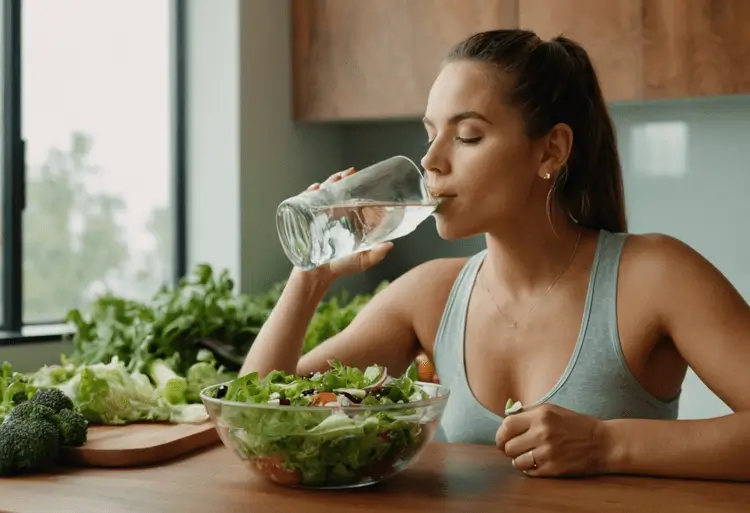Navigating a diverticulitis diet can be a real challenge. Do you struggle with the pain and discomfort of diverticulitis? Or maybe you’re worried about developing this condition and want to protect your gut health.
With so much conflicting information out there, it’s hard to know what to eat. What’s the difference between a diverticulosis diet and a diverticulitis flare-up diet?
Conflicting information makes it hard to figure out the right foods for diverticulitis. Should you avoid certain foods? Do you need a special diet long-term? A wrong turn with your diet can worsen your symptoms and leave you feeling frustrated.
This guide is your key to understanding the diverticulitis diet. We’ll break down what to eat for prevention, flare-up management, and achieving lasting gut health. Say goodbye to confusion and hello to a clear plan backed by the latest insights!
Diverticulitis Diet: The Quick Guide
- Focus on fiber (most of the time)
- Go low-fiber during flares
- Hydrate for gut health
- Exercise promotes regularity
- Manage stress
- Listen to your body’s signals
Table of contents
Understanding Diverticulitis and Its Dietary Connection

Diverticulosis vs. Diverticulitis: What’s the Difference?
Have you heard the terms “diverticulosis” and “diverticulitis” used together? They sound similar, but there’s a crucial distinction.
- Diverticulosis is when tiny pouches (diverticula) form in your colon. While common, it often causes no symptoms.
- Diverticulitis is when these pouches become inflamed or infected. This can cause pain, fever, and other unpleasant issues.
So, diverticulosis can potentially lead to diverticulitis, but not always.
The Role of Fiber in Prevention and Management
Picture your digestive system as a busy highway. Fiber is like the traffic controller. But what’s the deal with fiber and diverticulitis?
- Soluble fiber: Dissolves in water, forming a gel-like substance for smooth traffic flow.
- Insoluble fiber: Adds bulk to waste, keeping things moving along.
A diet rich in fiber helps prevent diverticulosis from developing in the first place. But, during a diverticulitis flare-up, your doctor might recommend a temporary low-fiber plan to give your gut a break.
Debunking Common Myths
Let’s clear up some confusion! You may have heard that seeds, nuts, and popcorn are off-limits with diverticulitis. Is this true? Current research suggests otherwise! These foods are unlikely to trigger flare-ups.
Furthermore, most people with diverticulitis don’t have specific food triggers to avoid. It’s more about finding a balanced diet that works for you.
Let me know in the comments if you’ve heard any other diverticulitis diet myths. We can bust them together!
Did you know that the foods that support diverticulitis recovery are also fantastic for overall gut health? Let’s dive into the best choices that protect you long-term and keep your digestion running smoothly…
Diet Plans for Different Stages
High-Fiber Diet for Diverticulosis Prevention
Think your diet could use a fiber boost? If you have diverticulosis, the answer is almost definitely yes! A high-fiber diverticulitis diet is your secret weapon to prevent those pouches from turning into painful flare-ups.
So, what does this kind of diet look like?
- Focus on whole foods: Think fruits, veggies, and whole grains galore.
- Sample meal plan:
- Breakfast – Oatmeal with berries
- Lunch – Big salad with grilled chicken breast
- Dinner – Lentil soup with whole-wheat bread
- Ramp up gradually: Suddenly overloading on fiber can be tough on your gut. Increase your intake slowly over time.
Low-Fiber Diet for Acute Diverticulitis Flares
Flare-up got you down? Your top priority is giving your colon a much-needed rest. This means temporarily switching to a low-fiber diverticulitis diet.
Here’s the gist:
- Clear liquids first: Broth, clear juices, and gelatin are your friends.
- Progress to soft: As things calm down, try soft, cooked foods like mashed potatoes or scrambled eggs.
- Sample meal plan: May differ based on individual tolerance and doctor’s recommendations.
Important Note: This is a temporary diet. For detailed guidance during flares, be sure to check in with your doctor or a registered dietitian – you can find reputable information on the Mayo Clinic overview of diverticulitis
Transitioning Back to a High-Fiber Diet

Flare-up subsided? Fantastic! Now, it’s time to gradually reintroduce healthy fiber back into your life. This is key to preventing future problems.
How do you do this safely?
- Listen to your body: If something causes discomfort, hold off.
- Hydration is key: Water helps your body process fiber smoothly.
- Embrace the good stuff: Focus on fiber-rich whole foods, not processed junk.
Let me know – what are your favorite high-fiber foods? Share in the comments, or tag me on social media!
Please note: The sample meal plans here are just examples. Your ideal diverticulitis diet plan will depend on your individual needs and tolerances. Always work with your doctor or a registered dietitian for personalized advice.
Beyond Food: Lifestyle Factors that Matter
Picture this: You’re diligently following your diverticulitis diet, but those pesky flare-ups keep happening. Why is that? The truth is, what you eat is only part of the puzzle. Let’s dive into the other lifestyle pieces that can make a huge difference!
The Importance of Hydration
Think of water as your gut’s best friend. It helps keep things moving smoothly and prevents constipation – a major risk factor for diverticulitis. Feeling a bit backed up? Up your water game! Aim for plenty of fluids throughout the day.
Exercise and Gut Health
Regular exercise does more than just keep you fit. It gets your bowels moving too! Is there a specific type of exercise you should do? Choose activities you enjoy – brisk walks, swimming, even dancing! Consistency is key.
Managing Stress
Stress wreaks havoc on your entire body, your gut included. When you’re constantly feeling overwhelmed, your digestion can take a hit. So, what helps? Find healthy ways to unwind. Yoga, meditation, or simply taking time for activities you love can work wonders.
Here are some bonus tips:
- Get enough sleep: Aim for 7-8 hours of quality rest for optimal gut health.
- Manage your weight: Carrying extra weight can increase your risk of diverticulitis. Consult a registered dietitian or a healthcare professional for personalized guidance.
- Quit smoking: This harmful habit is linked to a multitude of health problems, including diverticulitis.
Remember, small changes add up! Do you have any go-to stress-reducing techniques? Share them in the comments below or tag me on social media – I’d love to hear from you!
Supplements and Gut Health
Have you ever wondered if probiotics could help with your diverticulitis diet? Maybe you’ve seen supplements marketed for gut health and aren’t sure if they’re worth a try. Let’s dive in!
Probiotics and Diverticulitis
- Probiotics are those “good bacteria” that naturally live in your gut. Think of them as a friendly army supporting digestion and overall health.
- Can probiotics help prevent diverticulitis flares or ease symptoms? The research is ongoing, but there’s some promising potential.
Should I take a probiotic? Discuss this with your doctor, especially if you have other health conditions. For more info on specific strains and dosages.
Other Supplements to Consider
- Fiber supplements: If you struggle to get enough fiber from food alone, these can help. Always talk to your doctor first!
- L-glutamine: This amino acid may help repair the gut lining. Research is limited, so definitely check with your healthcare team.
Important Note: Supplements should never replace a healthy diverticulitis diet. They’re meant to be a potential addition, not a substitute.
Imagine a world where your gut feels consistently good, not just during flares. Probiotics could be the key to unlocking that potential. Let’s explore how they work and if they’re right for you.
Managing Diverticulitis Long-Term
Working with a Healthcare Professional
Think of your doctor or a registered dietitian as your partner in managing diverticulitis. They tailor a plan specifically for you, considering your unique needs. Is there another health condition you need to manage alongside diverticulitis? Your health team is here to help you navigate it all.
Listening to Your Body
Your body is your best guide when living with diverticulitis. Notice how different foods make you feel:
- Do certain foods cause bloating, gas, or discomfort?
- Can you identify any patterns?
Keeping a food journal can be a lifesaver, helping you pinpoint any sensitivities. Jot down what you eat and how you feel afterward. This becomes a valuable tool for you and your healthcare team.
Beyond the Diverticulitis Diet: Strategies for Success

Managing diverticulitis isn’t just about what’s on your plate. Let’s explore other game-changing habits:
- Hydration: Water is your gut’s best friend. It promotes smooth digestion and keeps things moving.
- Regular Exercise: Movement stimulates your bowels. Even a brisk walk makes a difference for the health of your gut.
- Stress Management: Is stress a trigger for your flare-ups? Learning simple relaxation techniques can make a big difference.
Remember: This is a journey, not a sprint. Be kind to yourself, and don’t hesitate to ask for support when you need it.
Let me know if you notice any patterns in your food journal or if you have other questions. Feel free to tag me on social media to share your diverticulitis journey!
Your Diverticulitis Diet Questions Answered
Depends on the stage!
Prevention: Fruits, veggies, whole grains (high-fiber foods)
Flare-ups: Cooked veggies, broths, refined grains (low-fiber foods)
Yes, especially ripe ones. They’re easy to digest.
During flare-ups, limit dairy. It can be harder to digest. Opt for lactose-free options if needed.
Water! Staying hydrated is key for gut health. Clear broths are great during flare-ups.
Yes, but it might take some adjustments. Focus on smaller portions and gradual reintroduction as you heal.
No. Your diet will depend on whether you’re preventing flares, managing one, or in recovery. Talk to your doctor for personalized guidance.
Nope! This is a myth. Focus on your overall eating pattern for gut health.
Relief from a flare-up can happen within days. Long-term benefits come from a consistently healthy diet.
Possibly not. Many people manage diverticulitis with a balanced, high-fiber diet and healthy lifestyle choices.